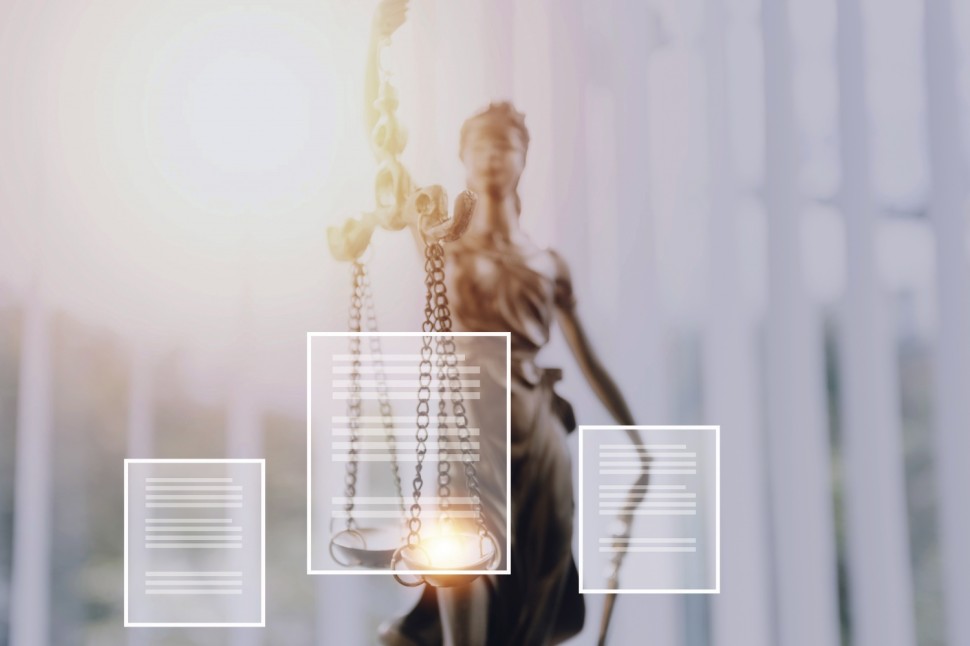In an unmistakable stride towards technology synergy, two preeminent federal appeals courts are fostering committees to study the impact of artificial intelligence (AI) on-court activities. This is seen as the judiciary's fresh initiative to accept this emergent, high-impact technology.
U.S. Circuit Judge Eric Miller is set to preside over an AI-accentuated committee for the 9th United States Circuit Court of Appeals based in San Francisco. This is the country's most significant federal appeals court, which is currently devoid of regulations or rules directing the use of AI by lawyers.

AI Committees in the Scenario
The Third U.S. Circuit Court of Appeals in Philadelphia isn't lagging either. Chief Judge Michael Chagares has also formed an AI committee, as informed by Joel McHugh, the court's deputy circuit executive. Meanwhile, the news of the 9th Circuit's committee surfaced after an announcement made by a Nashville-based legal firm on Tuesday.
Mary Murguia, the Chief U.S. Circuit Judge, has summoned the 9th Circuit's committee to aid the court in ascertaining suitable rules and uses for the technology. Judge Miller confirmed the committee's formation and assured us of an announcement soon.
Nevertheless, McHugh did not provide any specific details regarding potential regulations governing AI use or the timing of the action by these committees.
The Way Forward with AI in Courts
Why is there a sudden interest in forming AI-dedicated committees? It appears to result from judges across the country wrestling with the swift rise of generative AI programs like OpenAI's ChatGPT. They want to determine ways to regulate these programs' use in court operations.
Chief U.S. Supreme Court Justice John Roberts highlighted AI's likely benefits in his annual report last year. Nevertheless, he emphasized that cautious and humble application is the way forward. He shed light on conspicuous AI "hallucination" incidents - lawyers resorting to AI programs to present briefs referencing non-existent cases.
Pushing this aspect further, the 5th U.S. Circuit Court of Appeals, headquartered in New Orleans, proposed the first rule regulating lawyers' use of AI tools in November.
Ethical Considerations and AI Implementations
As a call to ethics within the legal fraternity, lawyers would be obliged to certify that filings generated by an AI program were thoroughly reviewed for citation and legal analysis accuracy as per the directive. Lawyers could face severe consequences, including striking off their filings and sanctions, for misrepresenting their rule compliance.
Fourth U.S. Circuit Court of Appeals based in Richmond also had its IT staff draft a report on AI issues, recommending potential strategies the court could embrace next. Meanwhile, the New York 2nd U.S. Circuit Court of Appeals rules committee acknowledged discussion around AI, although a dedicated panel for examining the matter isn't yet in place.
On the national stage, the Judicial Conference's Advisory Committee on Evidence Rules is gearing up for a conference centered around AI. The conference will consider whether any rules are necessary to control "deepfakes" from becoming trial evidence.
Time to Seek Legal Expertise?
As pivotal strides are being taken towards implementing AI in the judiciary, the current scenario underscores the significance of legal assistance from experienced lawyers. Well-versed in the comprehensive study and understanding of law, these professionals are well-positioned to bridge the gap between technology and law, ensuring justice is neither compromised nor denied.




